If you want to join an intellectual field with specialized skills, public health may be for you. Are you interested in epidemics, maternal and infant mortality, or Ebola? Gaining a degree in public health will give you a breadth of knowledge, expertise, and skills to make a difference among communities and possibly around the world. The Center for Disease Control and Prevention (CDC) defines public health as the science of protecting and improving the health of people and their communities. This work is achieved by promoting healthy lifestyles and preventative care; researching disease and injury prevention, and detecting, preventing and responding to infectious diseases. If you are dedicated to the idea of helping others who need medical assistance but are not yet a medical practitioner, consider a Master’s degree in Public Health. Master’s in Public Health (MPH) degrees are available on-campus and online. You may wonder which are the best online programs to get my Master’s in Public Health. Upon further review, many affordable universities offer online MPH programs.
Master’s in public health overview
According to the Bureau of Labor Statistics, people with a degree in MPH have average or higher than average job outlook opportunities for the next 10 years. This is promising for those considering a career in public health. MPH programs, although similar, offer different academic interests, professional goals, and concentrations. MPH programs generally include courses over infectious diseases, epidemiology, risk prediction, and biostatistics. MPH programs require various admission requirements, have different tuition costs, and offer different specialties or concentrations. Although MPH degrees are well known at big-time-science colleges such as John Hopkins, Baylor and Harvard; many online degree options are available at other big-name universities. Programs generally take 2-4 years to complete and offer career readiness directly after graduation.
Master’s in Public health programs have the same basic core curriculum; however, different universities offer different concentrations and focus. For example, if you are more interested in research you may get an MPH with a concentration in biostatistics and epidemiology. If you are more interested in disaster and emergency medicine you may go for the MPH with a concentration in global disaster management, humanitarian relief, and homeland security. After review of several university degree offerings, it was found that 38 different concentrations exist alongside the MPH degrees.
Cheapest online programs
The following universities offer 100% online degree plans for Master of Public Health. The list is organized by the lowest total cost to the greatest total cost. All calculated costs reflect in-state tuition only.
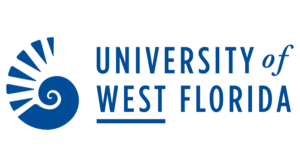 Program overview: The University of West Florida– MPH with concentrations in generalist or health promotion, education and behavior
Program overview: The University of West Florida– MPH with concentrations in generalist or health promotion, education and behavior
Cost: $16,182
Admission requirements: GRE required
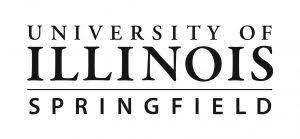 Program overview: University of Illinois at Springfield– MPH with a concentration in environmental health, general, or professional
Program overview: University of Illinois at Springfield– MPH with a concentration in environmental health, general, or professional
Cost: $17,388
Admission requirements: GRE required
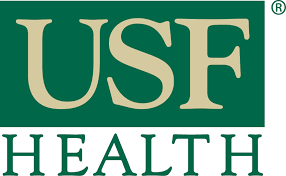 Program overview: University of South Florida– MPH with concentrations in epidemiology; global disaster management, humanitarian relief, and homeland security; health, safety, and environment; infection control; nutrition and dietetics; public health practice; social marketing
Program overview: University of South Florida– MPH with concentrations in epidemiology; global disaster management, humanitarian relief, and homeland security; health, safety, and environment; infection control; nutrition and dietetics; public health practice; social marketing
Cost: $18,120 (some concentrations may require more credit hours)
Admission requirements: GRE required depending on which concentration you choose
 Program overview: University of Florida– MPH with concentrations in public health practice; or social and behavioral sciences
Program overview: University of Florida– MPH with concentrations in public health practice; or social and behavioral sciences
Cost: $26,000
Admission requirements: GRE required
 Program overview: Michigan State University– MPH (no specialty concentrations)
Program overview: Michigan State University– MPH (no specialty concentrations)
Cost: $28,380
Admission requirements: GRE required
 Program overview: San Diego State University– MPH (no specialty concentrations)
Program overview: San Diego State University– MPH (no specialty concentrations)
Cost: $28,662
Admission requirements: GRE required, must have 3 years work experience and be employed full-time
 Program overview: University of South Carolina at Columbia– MPH in Health Promotion, or Education and Behavior
Program overview: University of South Carolina at Columbia– MPH in Health Promotion, or Education and Behavior
Cost: $30,088
Admission requirements: GRE required
 Program overview: University of Illinois at Chicago– MPH with a concentration in community health sciences; health policy and administration; or public health informatics
Program overview: University of Illinois at Chicago– MPH with a concentration in community health sciences; health policy and administration; or public health informatics
Cost: $30,660
Admission requirements: GRE required
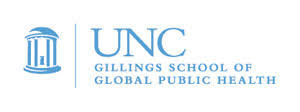 Program overview: University of North Carolina at Chapel Hill– MPH with concentrations in leadership in practice; applied epidemiology; health policy; or nutrition and master of public health/registered dietitian (MPH/RD).
Program overview: University of North Carolina at Chapel Hill– MPH with concentrations in leadership in practice; applied epidemiology; health policy; or nutrition and master of public health/registered dietitian (MPH/RD).
Cost: $32,231.50
Admission requirements: GRE required
![]() Program overview: A.T. Still University of Health Sciences– MPH (no specialty concentrations)
Program overview: A.T. Still University of Health Sciences– MPH (no specialty concentrations)
Cost: $33,456
Admission requirements: No GRE, minimum 2.5 GPA
 Program overview: University of Minnesota at Twin Cities– MPH with a concentration in maternal and child health
Program overview: University of Minnesota at Twin Cities– MPH with a concentration in maternal and child health
Cost: $41,160
Admission requirements: GRE required
Program overview: Creighton University- MPH with concentrations in healthcare management, or health policy and ethics
Cost: $43,780
Admission requirements: No GRE required, minimum 3.0 GPA
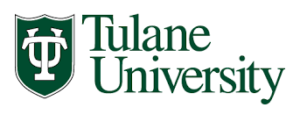 Program overview: Tulane University of Louisiana– MPH with concentrations in disaster management; occupational and environmental health; or occupational health and safety management
Program overview: Tulane University of Louisiana– MPH with concentrations in disaster management; occupational and environmental health; or occupational health and safety management
Cost: $49,950
Admission requirements: GRE required, 3 years of work experience
 Program overview: University of San Francisco– MPH in community and public health practice
Program overview: University of San Francisco– MPH in community and public health practice
Cost: $62,325
Admission requirements: No GRE, minimum 3.0 GPA
 Program overview: George Washington University– MPH with concentrations in global health; health policy; environment and occupational health; epidemiology and public health research methods; health communication; or program planning and evaluations
Program overview: George Washington University– MPH with concentrations in global health; health policy; environment and occupational health; epidemiology and public health research methods; health communication; or program planning and evaluations
Cost: $74,700
Admission requirements: GRE required
 Program overview: New York University– MPH concentration in sustainable development goals
Program overview: New York University– MPH concentration in sustainable development goals
Cost: $76,544
Admission requirements: No GRE required, but strongly recommended
 Program overview: University of Southern California– MPH with concentrations in biostatistics and epidemiology; community health promotion; global health; geohealth; health services and policy; or generalist.
Program overview: University of Southern California– MPH with concentrations in biostatistics and epidemiology; community health promotion; global health; geohealth; health services and policy; or generalist.
Cost: $87,561
Admission requirements: GRE required
Online programs and GRE
As you can see, most MPH programs require the GRE standardized exam. Of the online programs surveyed: A.T. Still University, Creighton University, University of San Francisco, and New York University do not require GRE test scores for admission. However, if you apply for one of these schools, you must verify your GPA is at their required minimum and your reference letters are excellent. No GRE requirements will mean more competition. If MPH is your career goal, and the other universities seem like a better fit for you, there are many GRE test prep sites you can sign up for or even take refresher courses at your local community college. Make sure you do well on the GRE exam, as most universities weight those scores heavily for graduate school admission.
Job opportunities for MPH
As a graduate of a Master’s in Public Health program, be prepared to work in a range of diverse practice areas. Epidemiologist, health educators, community health workers, high-level positions in hospitals, nonprofit groups, public health departments, academia, and private organizations are some career areas. Once trained and granted a MPH, you may work in the following areas:
- Conducting research studies that identify risk factors for diseases
- Participate in the design and analysis of clinical trials
- Work with the Centers for Disease Control and Prevention (CDC) or the National Institute of Health (NIH).
- Work with non-profit agencies
- Work as a member of a research team in medical or healthcare organizations
- Provide expert testimony in legal proceedings
- Work with state health departments
- Work in academia as a professor
Some graduates work for the military, PHS corps, federal, state and local governments. Jobs in health care settings both nationally and internationally are available as well. Some non-governmental organizations you can work for include the “Carter Center” in Sudan or the “World Vision” organization in Africa.
Other career opportunities as infection prevention team members exist in hospital, long-term care, outpatient, and correctional facilities. MPH graduates also work with health departments, offer consultation services to various companies, and other positions that require specialized knowledge and skills related to public health issues.
MPH graduates with social marketing specialization are employed by social-change organizations to help reform various public health policies. These graduates work with non-government organizations, government agencies, charities, academia, and private corporations.
Graduates will be able to hold high-level positions in several areas including: industry, energy production, utilities, consulting, manufacturing, government/military, non-government organizations, healthcare facilities, and academia.
Master’s in public health salary
Starting salaries vary depending on experience, specializations, skills, expertise, and academic program concentrations. According to the BLS, those involved with public health make anywhere from $46,080/year to $69,660/ year. Of course, this is an average estimate and you can make much more depending on if you are hired onto a leadership position. Working in the government sector versus the private sector may also change salary ranges. The amounts listed were verified on the CDC career page; however, private sector jobs may pay more. It is something you have to look into, but the starting salary for a government-type job is listed above.
Overall, obtaining a Master’s of Public Health degree is a great career path to take for someone interested in the health and safety of people, communities, and countries. Graduates will have specialized skills to apply public health principles to populations both locally, nationally, and internationally. With a wide range of job opportunities, MPH is a great career for students with or without medical experience who want to improve the health of people and their communities.
Tessa Chatham
Master of Science (M.S.), Nursing Education| Aspen University
Bachelor of Science (B.S.), Nursing| Texas Christian University
Bachelor of Arts (B.A), Psychology and English| The University of Texas at Arlington
October 2019
More Articles of Interest:
